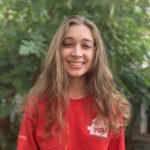
The gamble of education
Tuition fees remained stable for domestic students throughout COVID-19. However, post-secondary isn’t always accessible or recommended for everyone.
In 2019, Conservative Leader Doug Ford made cuts Ontario Student Assistance Program (OSAP) funding. This left many young people to figure out other avenues for funding their education.
Some Ontario graduates share their experiences and advice for youth who are considering post-secondary.
Academic fulfilment and work transitions
Brie Bennett’s York University theatre degree and gender and women’s studies certificate left them unfulfilled amid attention problems and isolation.
“I was expecting this deep enrichment and connections, and I was very separated from myself, from my industry and from my peers,” they said.
They were hired as an acting coach with a London, Ont., film company due to film and theatre experience rather than their degree.
“I have to list who I worked with, the type of roles that I played and the types of shows that I’ve done for someone to be slightly intrigued,” they said.
Bennett was initially told by an academic advisor that their certificate would allow them to work as a community worker. Another advisor in their final semester said they would need a social service worker (SSW) diploma.
Their degree and certificate were only starting points.
“That left me really crestfallen,” Bennett said.
Cameron Chevrier, a University of Ottawa bachelor of social sciences graduate in international development, chose their program randomly, lacking interest. They are now content with their University of Victoria master’s in sociology.
“It turns out finding a program that you actually care about helps,” they said.
Chevrier found a supportive community, their research interests (indigeneity and trans identity making) and their ideal supervisor. They’re still establishing professional goals.
“I went to grad school to buy myself time to figure out what I wanted to do,” they said.
They were hired full-time by Employment Social Development Canada (ESDC) as a junior policy analyst. With Métis Algonquin ancestry, Chevrier works with the director of Indigenous Affairs.
Mary Rykov is a York University creative writing undergraduate. She has undergraduate degrees in psychology, communications and music therapy. Rykov has a diploma and master’s in music therapy and a doctorate in adult education.
As a singer-songwriter, her passions and curiosity led her to success. She took Orff music training, worked as a nurse’s aide and in special needs. She attended Canada’s first music therapy program, becoming Alberta’s hospital system’s first music therapist. Her research put music therapy into Sick Kids Hospital.
When disabled by nerve damage, Rykov traded postdoctoral studies for the Metropolitan University of Toronto’s publishing program. She’s now an academic editor, poet, essayist and writing mentor. She’s taken University of Toronto poetry classes and York, tuition-free for those 60 and over, which has expanded her reading.
Experiences, goals and financing education
Bennett expected more support. They recall preparing for a Broadway show audition with an acting conservatory professor who didn’t provide much help.
“There could’ve been more help from professors and the department instead of just going “good luck,” they said.
They’re looking to professional workshops and considering Factory Theatre. The Stratford festival and acting conservatory are future dreams.
Bennett said they wouldn’t return to university “due to the expenses, lengthiness and exhaustion.”
From a low-income home, they enrolled with a Registered Education Savings Plan, expecting OSAP grants to cover most of their tuition before Ford’s budget cuts.
Bennett now has student debt.
“Post-secondary education should be free,” they said.
For Chevrier, their co-op terms in public service prepared them for work. Accessible through entrance scholarships and research funding, graduate school is increasing their job eligibility. They’re even considering a PhD.
As a Canadian graduate student, they have “a lot of opportunities to get supplementary funding for social science research through SSHRC,” among other organizations.
Without family support, scholarships were insufficient for their undergraduate.
Rykov used her music therapy experience in undergraduate papers and her research experience made her a better editor. Her freelance experience serves her in grant proposals and her community college teaching experience helps her mentor writers.
“Everything comes in useful,” she said.
Rykov funded her education through grants, loans and work.
“Even during my music therapy training, I was singing telegrams,” recalled Rykov.
The Ontario Cancer Society (OCS) gave her a graduate bursary and funded her doctorate and postdoc. Provincial and federal grants fund her writing fellowships and projects.
Advice and final thoughts
Bennett, Chevrier and Rykov recommended students follow their passion.
Bennett and Rykov suggested considering college. Bennett added that youth should follow their skills and pursue what makes them happy.
Chevrier recommended applying for various scholarships, avoiding attending institutions for their name and connecting with professors in their field of interest.
“They’ll usually be really happy to talk to you about what they’re also passionate about,” Chevrier said.
Rykov recommended students learn about their field, work hard and ask for help as needed. She added that any program is “as good as you make it.”
That is, for those who have access.
About the author
Laura is a Copy Editor for Youth Mind. When she’s not reading, writing, proofreading or editing, she’s binge-watching series and films, adding new goals to her bucket list and daydreaming or listening to an eclectic playlist or podcast. She can also often be found dancing, unsubscribing to emails she accidentally subscribed to, discovering new green spaces or snuggling with her dog.







